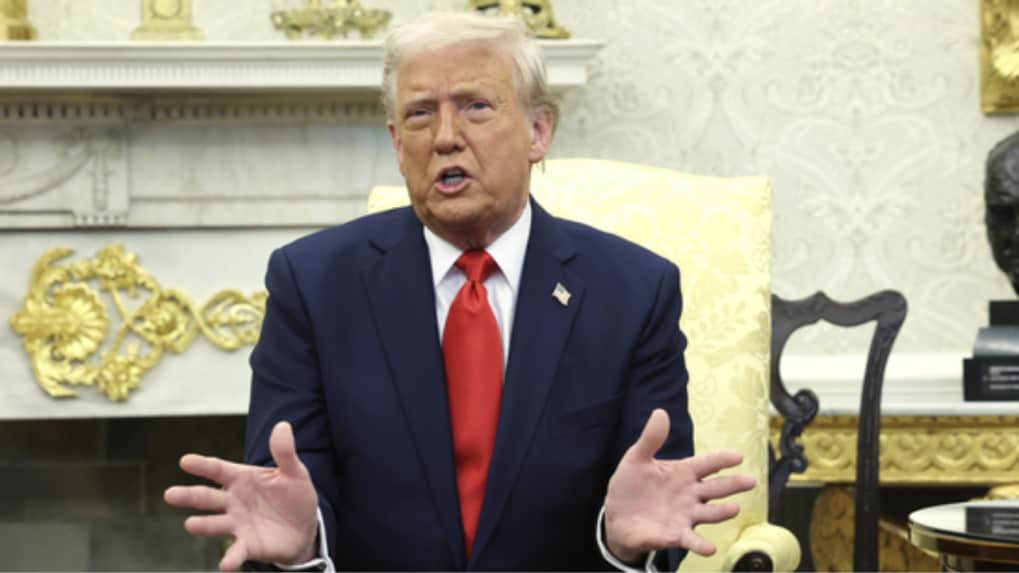Advertising
Co-lead or crown? Tussle for Omnicom–IPG leadership race in India heats up

Former U.S. President Donald Trump has once again grabbed headlines — this time, not for a political rally, but for calling to rename Artificial Intelligence. His reason? He doesn't like the word “artificial.”
“You know, I don’t like anything that is artificial. It’s not artificial. It’s genius. It’s pure genius,” Trump told attendees at a high-profile AI summit held on Wednesday, as reported by the Irish Star.
The summit, which hosted tech investors and executives including Al Czars’ David Sacks, became the stage for Trump’s unveiling of an “AI Action Plan” — aimed at accelerating U.S. dominance in the global AI arms race. But his off-the-cuff remarks about branding may have stolen the spotlight.
Why Does Trump Want AI to Have a New Name? Trump’s logic, bizarre as it sounds, stems from semantics. He argued that the term “artificial” diminishes the true brilliance of AI technologies.
“We should change the name. I actually mean that,” he said, doubling down on his view that a term like “artificial” underplays the intelligence and innovation behind the systems powering generative AI like ChatGPT, Gemini, and others.
Behind the Rebrand: Deregulation and Ideology Beyond the optics, Trump’s AI agenda is more than just a branding exercise. His action plan proposes rolling back environmental regulations to fast-track the construction of AI supercomputers and data centers. expanding AI tech exports to bolster U.S. global competitiveness and scrapping Biden-era AI frameworks that assess risks around misinformation, DEI (Diversity, Equity, and Inclusion), and climate impact.
Trump’s plan aligns with vocal tech donors who have criticized mainstream AI platforms for having a “liberal bias.” As AI becomes a political flashpoint, Trump appears to be leveraging the issue to reinforce his broader anti-woke and anti-regulation stance — pitching AI as a tool of innovation, not oversight.
Trump and AI: A Complicated Courtship This isn’t Trump’s first AI controversy. Just last week, he faced backlash for using AI-generated content in campaign materials without disclosure. Now, by suggesting a name change, he’s positioning himself as a cultural and political critic of how the U.S. is handling tech governance.
According to LinkedIn’s research with over 1,700 B2B tech buyers, video storytelling has emerged as the most trusted, engaging, and effective format for B2B marketers. But what’s driving this shift towards video in B2B? (Image Source: Unsplash)
Read MoreDiscover Arattai, Zoho’s made-in-India messaging app. Features, privacy, user growth, and how it compares to WhatsApp in 2025.